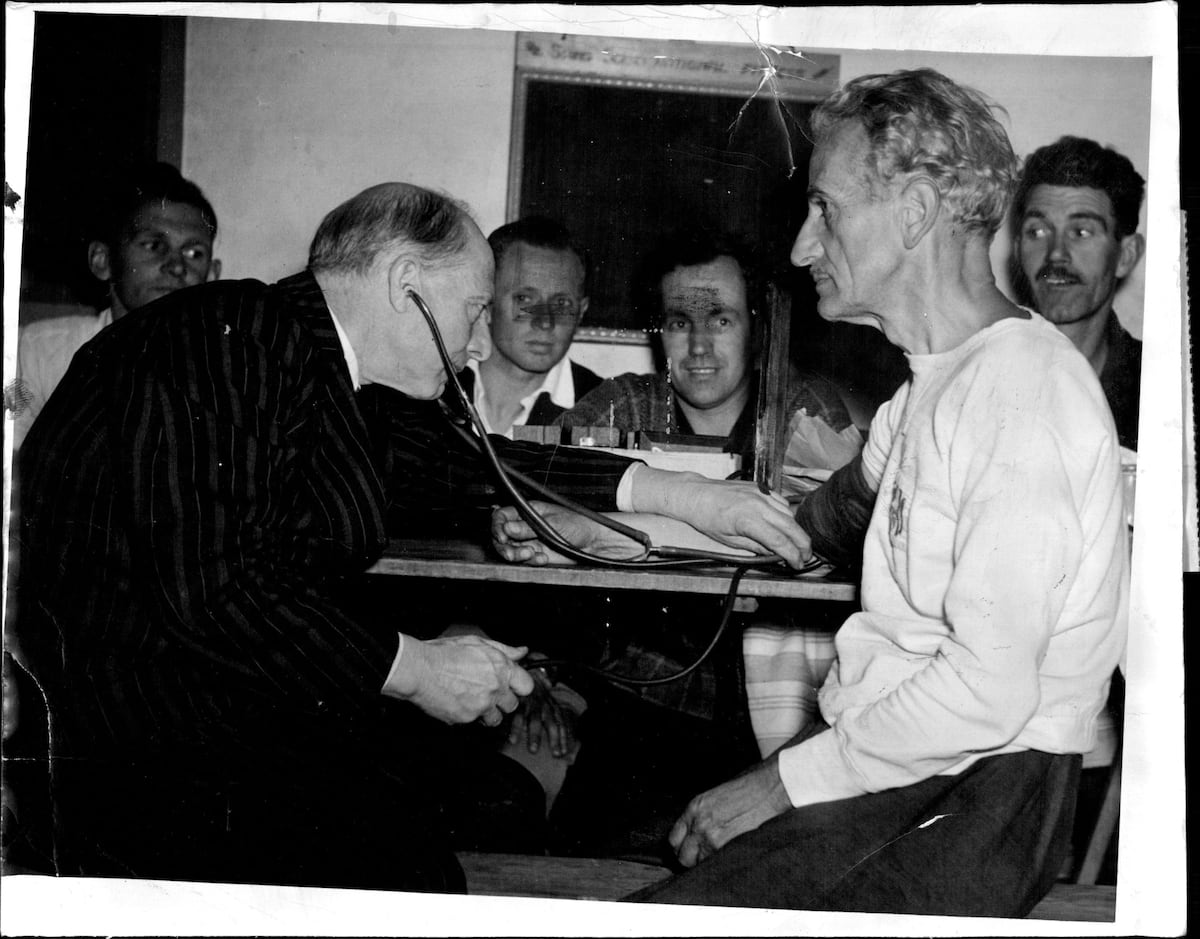He was a Post Office official like so many others, who led a life that was too stressed, dissatisfied and somewhat sick.
In a routine medical check-up he received the bad news that his health was deplorable and he had to radically change his life.
We are talking about Percy Cerutty (1895-1975, Australia).
The name may not be familiar to you, but he became one of Australia's greatest middle and long distance track and field coaches in the 1950-1960s.
But how could he change himself so radically?
He did it recognizing and assuming that moving is a form of existence.
Cerruty decided to make an inner change that led him to educate himself towards a healthier life.
He changed his way of eating, trained his strength, ran long distances over different terrains, and established his own philosophy where he mixed the austerity of the Spartan with the thinking of a Stoic.
It was a clear example of the importance of not only
moving around the world
, but also
moving around the world
using the resources of nature and the environment to be able to train (beaches, dunes to run barefoot and all kinds of paths) improving the perception that one has of oneself.
Any space is an invitation to move.
The importance of exercising is fundamental in human beings, but sometimes we are not aware of how crucial it is for our physical and mental health.
In many cases, changes in our lifestyles are preceded by critical events or events that alter our health, such as an injury, an illness or the stress generated by work.
This fact has been magnified by the pandemic and confinement during covid-19.
As the psychologist Guy Claxton puts it, "we exist by happening... if we don't do things we don't survive."
In the beginning was the movement, and from birth to old age, we are marked by everything we have done or have not done throughout our life journey.
What's more, we think better when we move and are on the move;
thus,
It's never too late to adopt an active and healthy lifestyle.
A walk in the park or the mountains, riding a bike, dancing, swimming in the pool or playing our favorite sport is always a good excuse to be active.
We need to exercise, we need to carry out a voluntary activity, planned and organized to maintain health and physical condition.
We must be aware that the effects only come when there is planning and perseverance.
The WHO warns us that we need to invest 150 to 300 minutes of moderate aerobic physical exercise or 75 minutes of intense exercise per week, combined with 2 days of strength, trying to reduce sedentary activity as much as possible.
We already have the recommendations, now the important thing is to start, little by little, minute by minute, day by day.
Evolutionary biologist David Liebermann warns us about the paradox of exercise: Why is something that we have never evolved for healthy? He explains that it responds to a need (“wanting to exercise”) and can become rewarding (“it deserves to exercise”). the sorrow").
The key is in each one of us.
The WHO warns us that we need to invest 150 to 300 minutes of moderate aerobic physical exercise or 75 minutes of intense exercise per week, combined with 2 days of strength, trying to reduce sedentary activity as much as possible
And our schoolchildren?
This need for exercise and movement is much more pronounced at school age, where the message is conveyed to students that the important thing is to be seated behind a desk.
Our schoolchildren spend between 5 and 7 hours sitting each day, without any physical activity.
Their study program includes 2-3 hours of physical education per week (what happened to the 3 hours that many Autonomous Communities wanted to implement before the pandemic?), which is insufficient to meet the WHO recommendations.
We are faced with the need for physical literacy, where this physical education plays a fundamental role, proposing solid programs of physical activity.
Already in 1900, the use of physical education was strongly required as a means of exercising and preventing the population from gaining weight, moving less and possibly having spinal problems.
We have made little progress since then.
Today we know the benefits of physical exercise in childhood, but there are still those who insist on promoting a sedentary life in our schoolchildren.
The key, at this moment in which we live, is to generate adhesion and motivation towards the practice of physical activity, where, as the sociologist George Vigarello tells us, a collective commitment is proposed to face physical and mental health responsibly, adapted to the image body and collective image, fleeing from the stigmas about people who do not exercise or who are overweight, as well as from the myths about the body.
The environment is a huge stimulus that can change impulses and actions on a daily basis, and we have many examples of them, such as the subway stairs in Germany, where lanes of an athletics track have been drawn to encourage climbing the stairs. walking stairs or free subway tickets in Russia after doing 30 squats.
Today the phrase coined by Juvenal
Mens sana in corporse sana
(1st and 2nd century AD) is still valid, with which he asked the gods for a peaceful old age.
And Forrest Gump already said it when asked why he had been running for more than 2 years.
He simply replied that he "felt like running."
Let us therefore generate that stimulus in the population that serves as a habit and routine for an active lifestyle that improves physical and mental health.
Miguel Ángel Gómez Ruano
is a university professor at the Polytechnic University of Madrid (Faculty of Physical Activity and Sports Sciences).
Psychosocial research group in sport
.
FIND OUT
It is the space of EL PAÍS Salud where we will talk about those aspects related to physical activity, sports and physical and mental health.
Physical activity and sport are part of the culture of all civilizations and play a fundamental role in the health of society at all levels, both physical and mental, at all ages, from childhood to old age, both in men as in women.
The Physical Activity and Sports Sciences have tried to advance scientific knowledge about the importance of movement and physical exercise on the body, as well as the processes that explain why certain adaptations, modifications or changes to different levels (physiological, anatomical, motor, emotional or cognitive).
For all this,
This space seeks to find the scientific explanations that support and justify the reasons that are so beneficial for physical activity and sport.
Likewise, it will try to discuss and refute certain myths or false beliefs existing in society on specific issues of physical exercise and health.












/cloudfront-eu-central-1.images.arcpublishing.com/prisa/KMEYMJKESBAZBE4MRBAM4TGHIQ.jpg)


